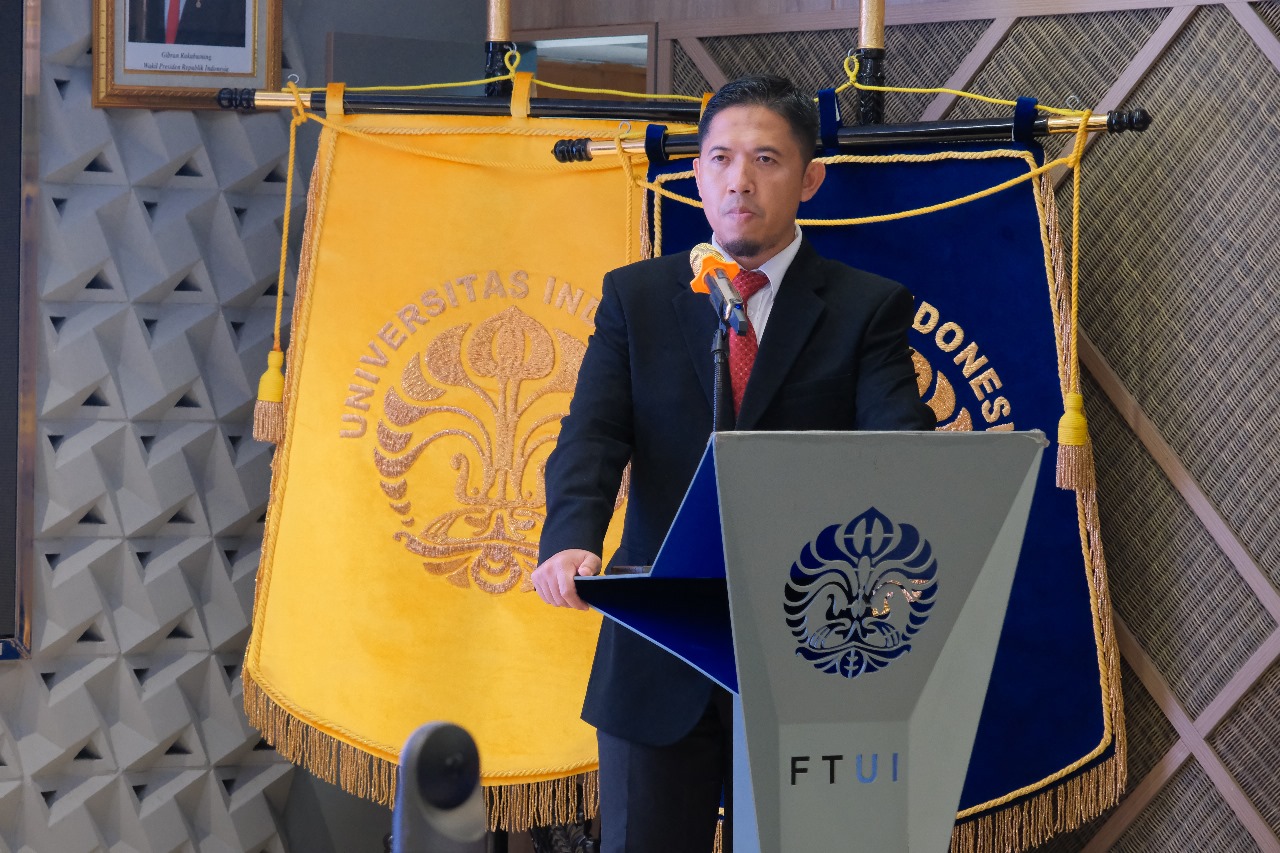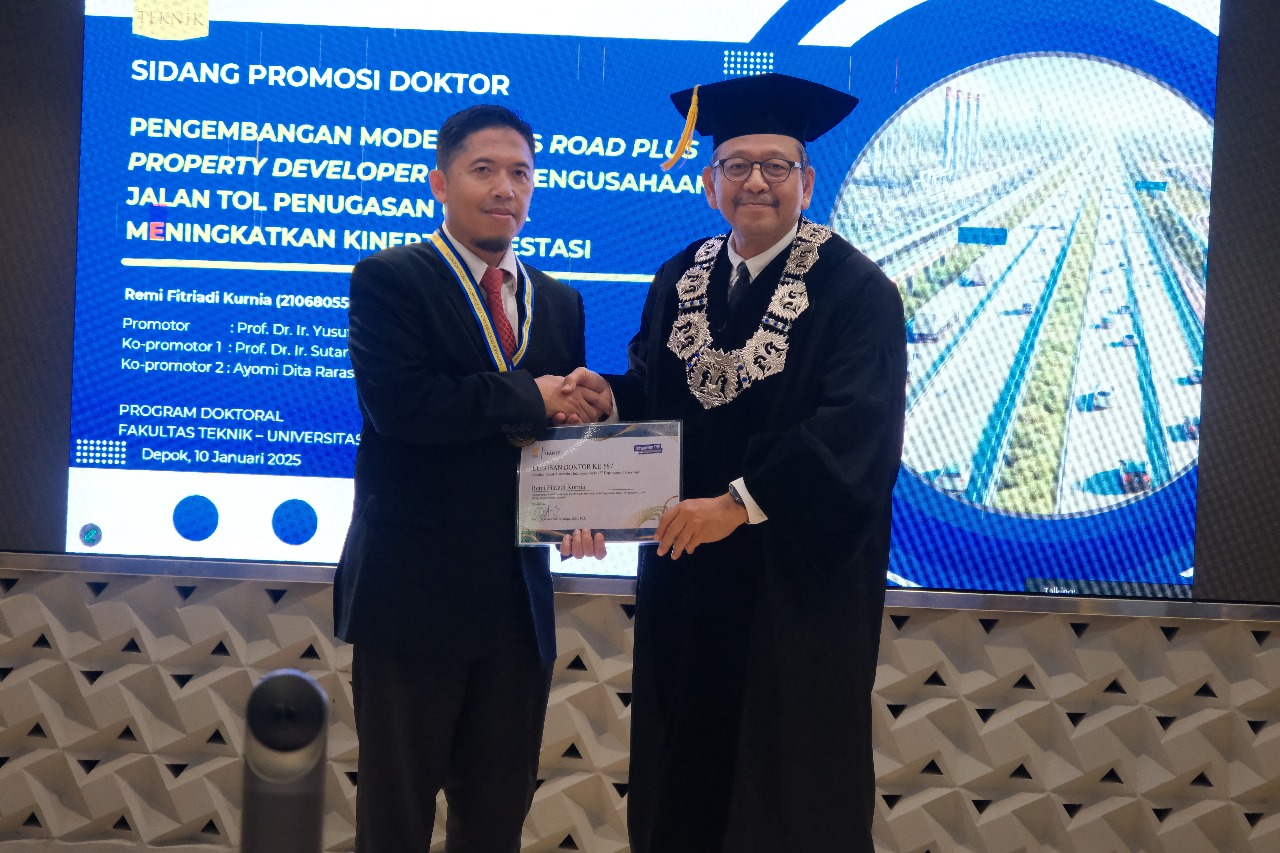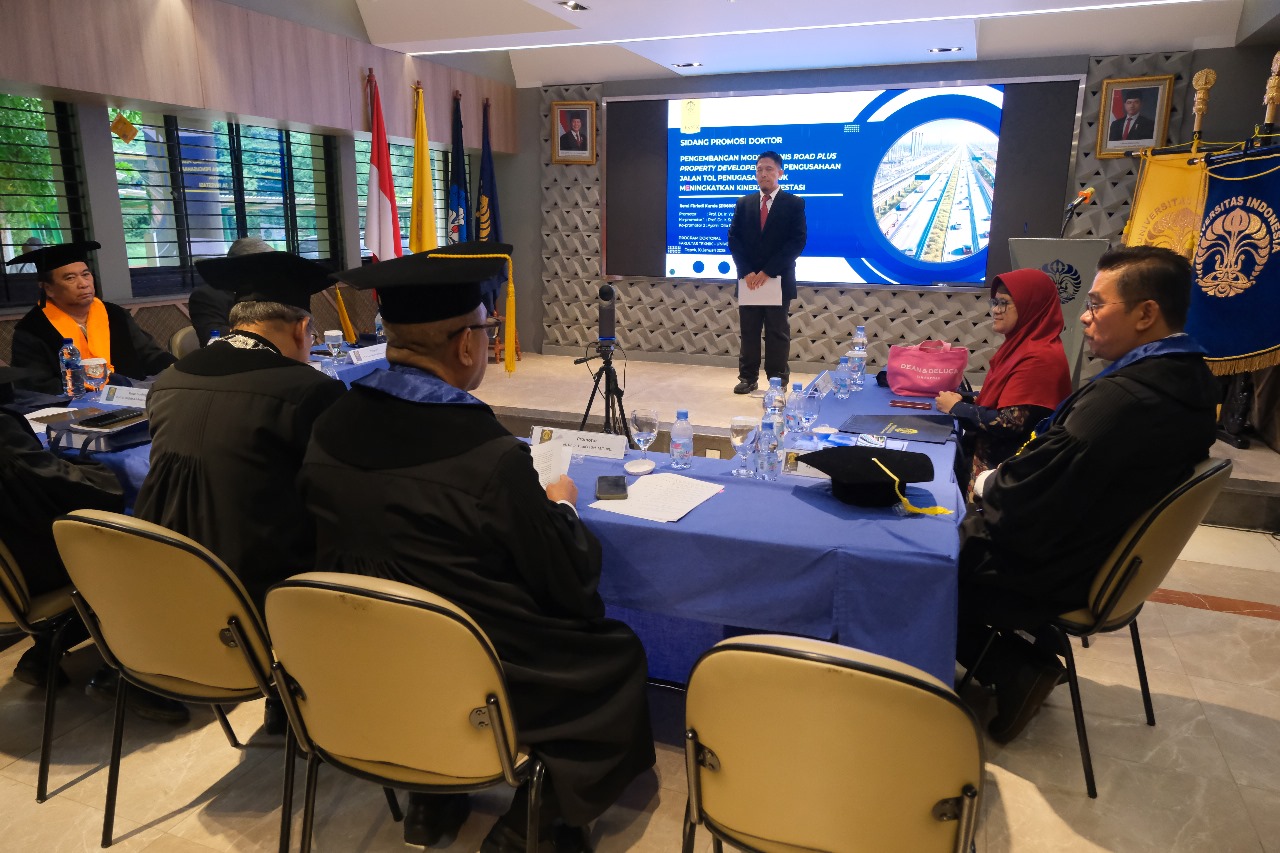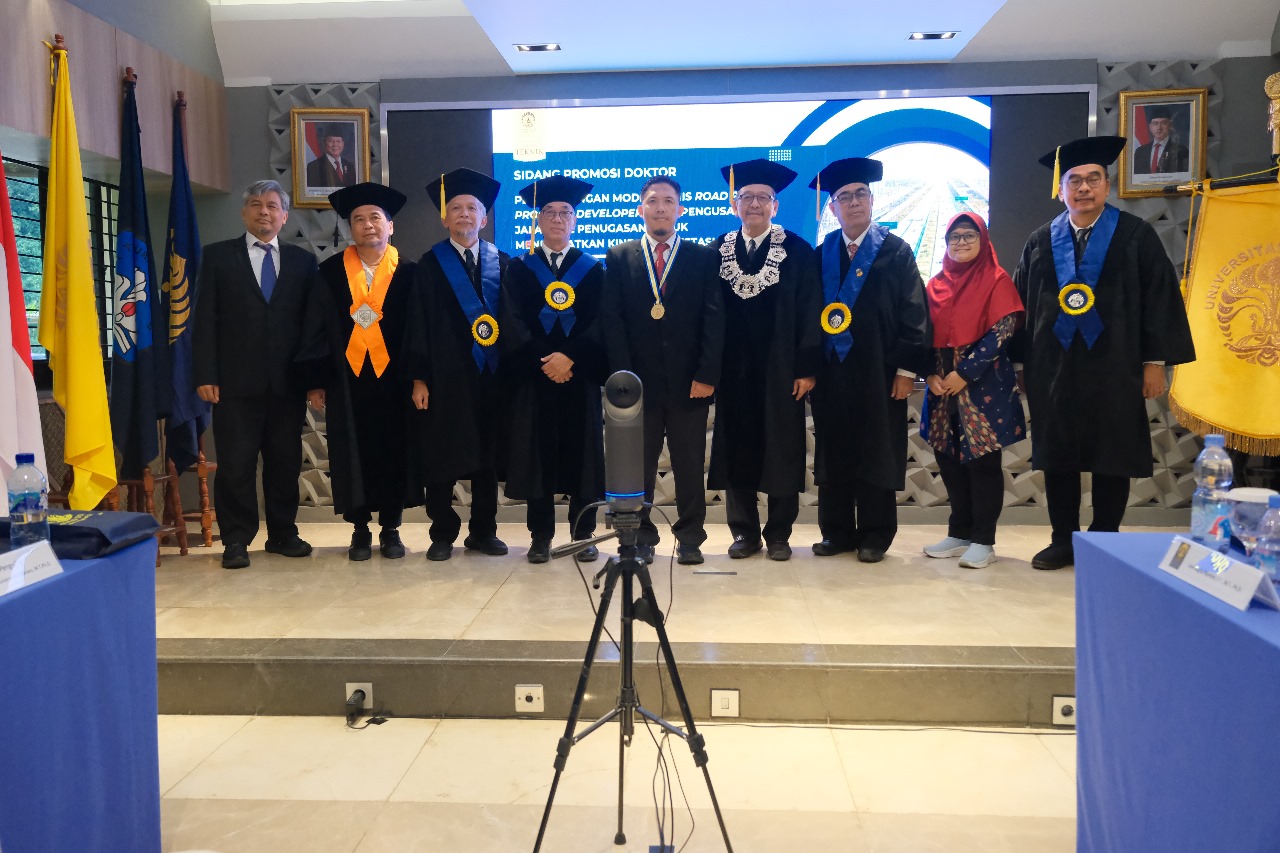The development of toll roads in Indonesia, such as the Trans Sumatra Toll Road (JTTS), faces numerous challenges, including limited funding and suboptimal investment performance. These challenges prompted Remi Fitriadi Kurnia, a doctoral student in Civil Engineering at the Faculty of Engineering, Universitas Indonesia (FTUI), to conduct an in-depth study on the development of toll road business models.
Remi presented his research during an open doctoral promotion session on Friday (01/10) at the Makara 04 Smart Meeting Room, FTUI Dean’s Office. His dissertation, titled “Development of the Road Plus Property Developer Business Model for Assigned Toll Road Projects to Improve Investment Performance,” proposes an innovative strategy to address these issues and enhance investment outcomes in assigned toll road projects.
“Toll road development is integral to the Indonesian government’s efforts to accelerate infrastructure development. However, these projects face additional challenges, such as traffic volumes falling short of initial projections and suboptimal application of ‘Land Value Capture’ (LVC), a policy leveraging increased land value to finance infrastructure,” Remi explained.
He highlighted that assigned toll roads are managed by the Toll Road Regulatory Agency (BPJT), established by the Minister and accountable to the Minister. BPJT oversees specific central government authorities in toll road operations.
“There are three major obstacles in assigned toll road operations: limited government funding coupled with the high debt of state-owned construction companies, financial deficits in toll road management due to high operational costs, and the underutilization of toll road assets to generate additional revenue,” Remi noted.
This research aimed to address the central question of how to develop a business model that manages toll roads and leverages toll road assets to create added value. To this end, Remi formulated the Road Plus Property Developer (RPPD) business model, which integrates toll road management with property development along toll road corridors.
Remi employed a combination of qualitative and quantitative methods in his research. These included:
- Relative Importance Index (RII): To identify key influential factors,
- Structural Equation Modeling (SEM): To analyze variable relationships,
- Business Model Canvas (BMC): To design the business model structure,
- Life Cycle Cost (LCC): To evaluate financial feasibility and
- Soft System Methodology (SSM): To integrate various stakeholder perspectives.
“My case study focused on the Trans Sumatra Toll Road, Bakauheni–Terbanggi Besar segment. The research demonstrated that integrating toll road operations with industrial zone development could increase the Internal Rate of Return (IRR) to 14.07%, about a 25% improvement from the existing IRR of 11.18%. Property business management, such as rest areas, billboards, and fibre optic networks, also yielded an IRR of 15.82%,” he elaborated.
The findings revealed that the RPPD business model provides significant added value for toll road investment development. This approach benefits managing companies, increases the appeal of toll road projects to investors, and supports regional development acceleration.
Remi recommended that the government and toll road operators adopt the RPPD model more broadly, particularly for assigned toll road projects. He also emphasized the need to strengthen strategic policies, such as LVC implementation, to optimize the development potential of areas surrounding toll roads.
The Acting Dean of FTUI, Prof. Ir. Mahmud Sudibandriyo, MSc., Ph.D., highlighted the relevance of this research to Indonesia’s infrastructure development needs. “The proposed Road Plus Property Developer business model offers an innovative approach that focuses not only on the financial sustainability of projects but also on enhancing social and economic value in areas surrounding toll roads. We hope stakeholders will implement this research to support the acceleration of national infrastructure development,” he remarked.
Remi Fitriadi Kurnia successfully defended his dissertation and earned a doctoral degree with Cum Laude honours and a GPA of 3.96. Dr. Remi is the 77th doctoral graduate from the Department of Civil Engineering and the 587th from FTUI. The session was chaired by Prof. Dr. Ir. Yanuar, M.Eng., M.Sc., with Prof. Dr. Ir. Yusuf Latief, M.T., IPU, as the principal advisor. Co-advisors were Prof. Dr. Ir. Sutanto S., M.Eng., and Ayomi Dita Rarasati, ST, M.T., Ph.D. The examination committee included Prof. Ir. Widjojo A. Prakoso, M.Sc., Ph.D.; Prof. M. Ali Berawi, M.Eng.Sc., Ph.D.; Leni Sagita Riantini, S.T., M.T., Ph.D.; Prof. Jr. Krishna Mochtar, MSCE, Ph.D.; and Ir. R. Sony S. Wibowo, M.T., Ph.D.
***
Public Communication Office
Faculty of Engineering, Universitas Indonesia




